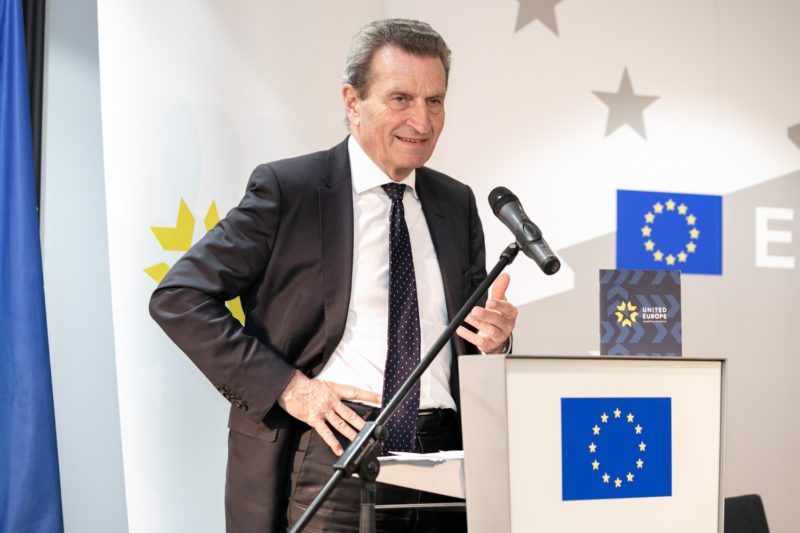
On 26 April, United Europe organised a panel discussion on the 2024 European elections at the representation of the European Commission in Berlin. Sonja Alvarez Sobreviela, Deputy Bureau Chief of Wirtschaftswoche, spoke to Dr Ralf Stegner, MdB, Dr Nicolai von Ordanza, Senior Fellow at SWP and Hans von der Burchard, Senior Politics Reporter at Politico about leveraging the power of votes for about 130 million citizens in the European Union. Which issues will make it to the campaign trail in 2024, what are the priorities of the European Union in the next decade and how will the EU curb the negative influence of Euroskeptics?
Dr Jörg Wojahn, Head of the EU Representation in Germany and Günther H. Oettinger, President of United Europe opened the debate with a keynote speech on Europe’s geopolitical challenges and Europe’s agenda for 2023.
Will it be western, eastern, northern or southern interests that take centre stage? Will the Conservatives, Greens, or Liberals come out on top? Günther H Oettinger prioritised building a balanced European team that can tackle global issues with a coherent approach and regains credibility on the global stage. “This is particularly important in the face of growing pressure from China and the United States. We need a European Union that reaches a level of world politics capability and sovereignty, something we don’t have at the moment,” he underlined. As European Union member states gear up for the upcoming election, the question on everyone’s lips is: which topic will dominate the campaign? While some hope for a Europe-wide debate on topics such as enlargement and migration, others fear that the election will be dominated by Eurosceptic campaigns that seek to attack local governments.
However, with many European countries still grappling with economic challenges, it’s possible that domestic issues may overshadow more pressing European concerns. Moreover, the upcoming US election and the ongoing fallout from Brexit could also have an impact on the campaign trail, as the strategic position of the West becomes a more pressing issue.
Against this backdrop, it remains to be seen which topic will ultimately come to dominate the European election campaign. Whatever the outcome, the 2024 European election promises to be a critical moment in the continent’s history, as it faces a host of complex challenges that will shape the future of Europe for years to come.
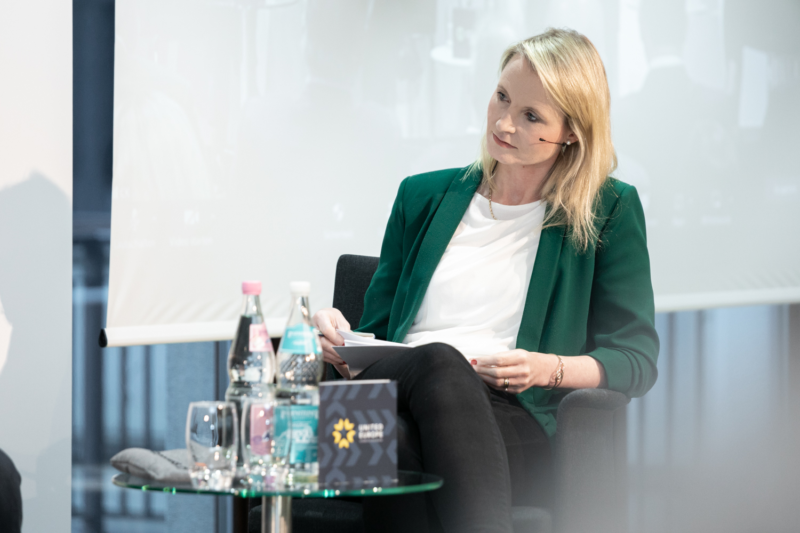
The Spitzenkandidaten fiasco:
In the run-up to the 2024 European Parliament elections, questions are swirling around the Spitzenkandidaten process. Will there even be lead candidates? And if so, will they be able to personalise the campaign and present a common theme? With elections coming up in the US, the UK and the EU, a realignment of the West may be on the horizon.
The current system for electing the Commission president is a point of contention for many member states and governments. While the European Council nominates candidates, it is ultimately up to the Parliament to elect one of the candidates as Commission President. However, as seen with the election of current Commission president Ursula von der Leyen, the vote in the European Parliament may not necessarily decide on the Spitzenkandidat.
This has raised the question of the influence the European Parliament actually has in the decision-making process for Spitzenkandidaten. While the Parliament may have some sway on issues like the Green Deal, decisions on key issues such as the corona vaccination rollout, the Ukraine conflict, and the energy package are typically made by the Commission, not the Parliament. It remains to be seen how much power the Parliament will ultimately wield in shaping the future of the EU. “While the polls have not changed much since 2019, Von der Leyen has a good chance of being re-elected,” Hans von der Burchard predicted during the discussion. “However, whether Joseph Borrell will be re-elected remains to be seen.”
Franco-German relations:
In Eu politics, few partnerships are as important as that between France and Germany. With both nations at the heart of the European Union, their cooperation is seen as essential for the success of the EU project. However, recent events have highlighted tensions between the two countries, with differences causing concern for many observers.
French President Emmanuel Macron has been vocal in his calls for more strategic autonomy in Europe in April 2023, arguing that this is necessary for a bright future for the EU. Speaking recently on the topic, he emphasized the importance of France and German working together as two hearts beating in one soul. However, his German counterpart, Chancellor Olaf Scholz, has taken a different approach, describing the Franco-German relationship as a “machine of compromise”.
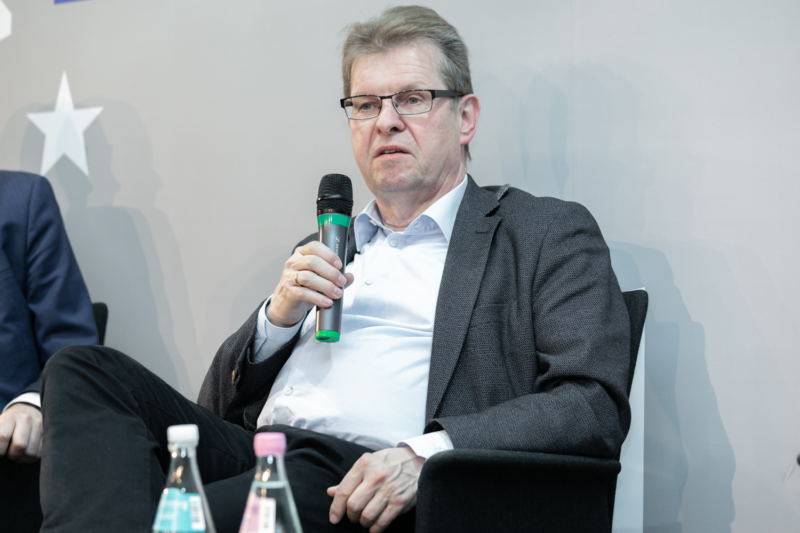
Despite these differences in approach, the experts on the panel argued that some degree of divergence between the two nations is not necessarily a bad thing. “We hear a lot of public fuss about Franco-German relations, but for what its actually worth, France and Germany have always worked best within the European Union when they had differences,” said Dr Ralf Stegner, a German politician and member of the European Committee at the German Bundestag.
However, concerns remain about the current state of the Franco-German relations. Some French officials worry that Germany is currently too focused on Eastern Europe, neglecting the importance of its partnership with France. Additionally, Germany’s internal politics and coalition constellation may be limiting its ability to engage with European partners.
One major issue is the perception that Germany often prioritizes its national interests over those of the EU as a whole. This was highlighted in the case of the “Doppelwums”, a national initiative to curb energy prices that were not coordinated on a European level.
Many EU partners are criticizing Germany for looking primarily to the US rather than considering the interests of European allies. As Dr von Ordanza noted, “Germany always makes up its mind very late in the game and Germany does not take a clear position during negotiations. This can be frustrating for other EU members who are looking for Germany to take a leadership role in shaping the future of the EU”.
Despite these challenges, many still see the Franco-German relationship as essential for the success of the EU project. Dr von Ordanza highlighted “we need those two countries to agree to have a strong Europe.” Ultimately, the success of the EU may depend on whether France and Germany can find a way to work together effectively and bridge their differences.
Transatlantic relations:
As the 2024 US presidential election approaches, many in Europe are closely watching the race, hoping for a candidate who will be supportive of EU interests. The current US President, Joe Biden, is seen as the most pro-European candidate in the race. Dr Ralf Stegner said, “The best outcome for Europe would be his re-election. Nobody is ready for a second term with Trump.”
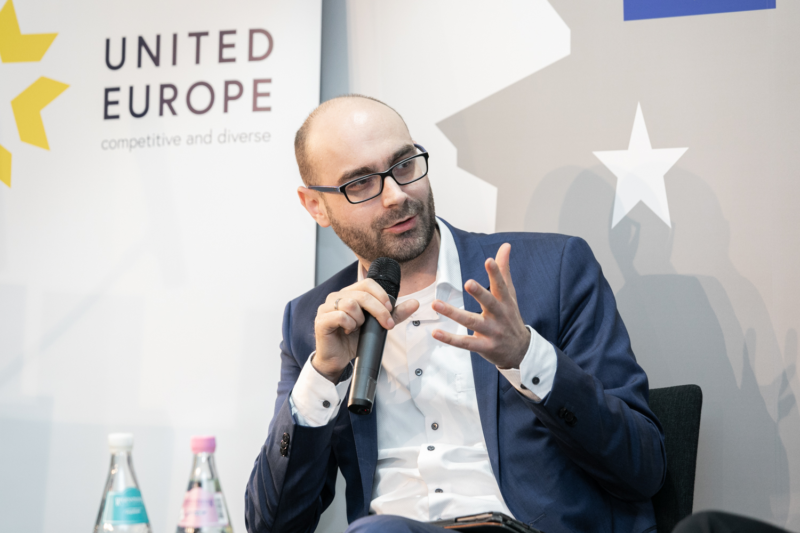
The transatlantic partnership still faces many challenges. One of the most pressing issues is the situation in Ukraine, which has the potential to escalate into a broader conflict with Russia. Stegner continued, “Washington’s position is of utmost importance and we have to agree with Washington on Ukraine.” However, he also emphasized the importance of keeping certain technical debates about weapons and warfare behind closed doors: “The most successful negotiations happen behind closed doors,” he said. “And in times of war, fast decisions may not be the best. Leadership doesn’t mean being the first to give a direction, but rather being the one who comes to a good decision.” Ultimately what people most want is peace and prosperity and as long as the war is waging Europe won’t negotiate on agriculture or economic policy. “At the moment, all we do is talk about weapons, we need to change that and talk about things that lead to peace. That is what voters in the EU are most concerned about and that is what will move them: war and weapons do not lead to economic growth and prosperity.”
EU Integration & Enlargement:
In the coming years, the European Union will experience a revival of the enlargement process towards Eastern Europe and the Western Balkans, hopefully with the accession of new member states. Credibility is key, and the EU must rebuild its reputation by working with Ukraine, Moldova and the six Western Balkan countries. These eight countries, with roughly the same population as the UK, have a complex history and varying interests that must be carefully navigated. “The world won’t wait for Europe, and if Europe doesn’t get its act together, we will have a bad future,” warns Stegner.
However, progress has been slow, particularly regarding the Western Balkans, where the EU’s credibility has suffered. Reform is needed, including a majority voting principle and a reevaluation of the European Commission’s makeup. Reform must be a priority on top of other strategic challenges, such as shaping Europe’s neighbourhood and projecting the European project in the next decade. Europe needs to do its homework as it risks failing to meet the requirements for countries like North Macedonia to become part of the EU. Positive signs are emerging, such as the enlargement of NATO with Finland and Sweden’s impending membership.
Stegner emphasized the urgency of action, especially in the face of the migration issue, which must be a main topic of the next election’s agenda. “Wartime has shown people that now is the time to act,” he explains. “Only with international partners can Europe compete in the world and Chancellor Scholz seems to understand this.”
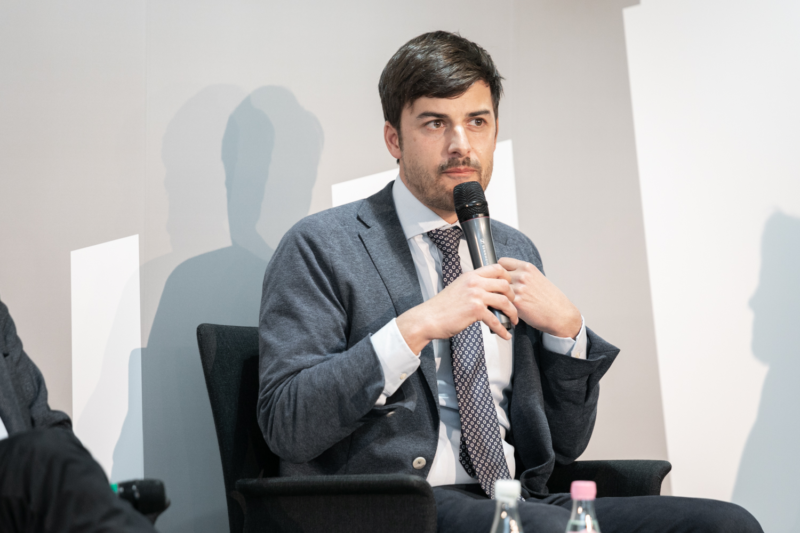
Friendshoring & Trade Agreements:
As the European Union gears up for elections, the effectiveness of its programmes without adequate outreach to Africa, Latin America and Asia to find new partners is coming under scrutiny. Trade deals are set to be one of the major topics on the election agenda, with the controversial Mercosur deal still on the table. Can the EU resist China’s economic pressure without having Latin America as a partner?
The EU’s Green Deal, fitfor55, and Global Gateway programmes are a good start, but implementation has faced significant setbacks. The question remains: how effective are these programmes? Scholz has been travelling the world to make these programmes work and find international partners, with trade deals such as Mercosur likely to be a major election issue. The EU must ask itself whether it can resist pressure without alternative markets, making partnerships crucial. “The lack of progress in finding solutions to these issues is cause for concern,” warned Hans von der Burchard. As the EU faces a number of challenges on the global stage, it is clear that finding new partners in Africa, Latin America, and Asia will be key to its success. The upcoming elections will undoubtedly focus on these issues, and finding effective solutions will be crucial for the EU’s future.
We want to thank the Representation of the European Commission in Berlin for hosting us and our speakers and our guests for participating.



